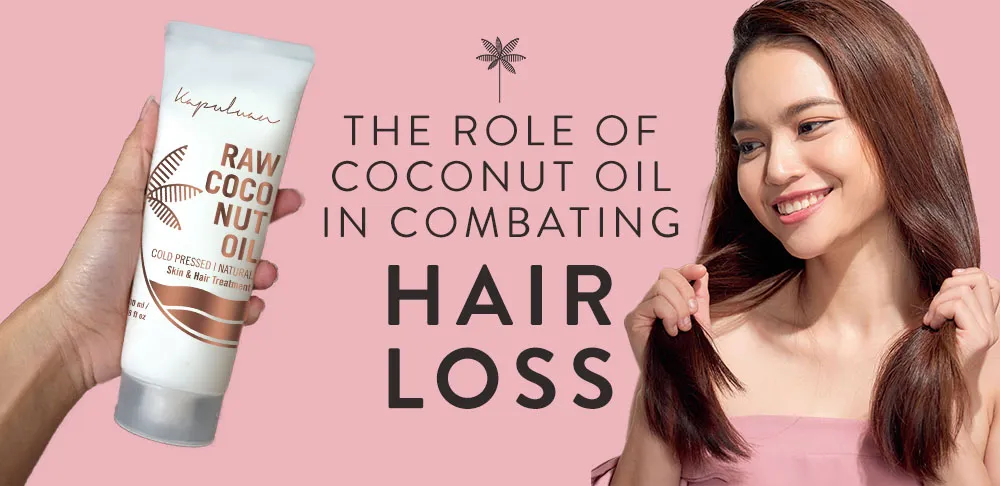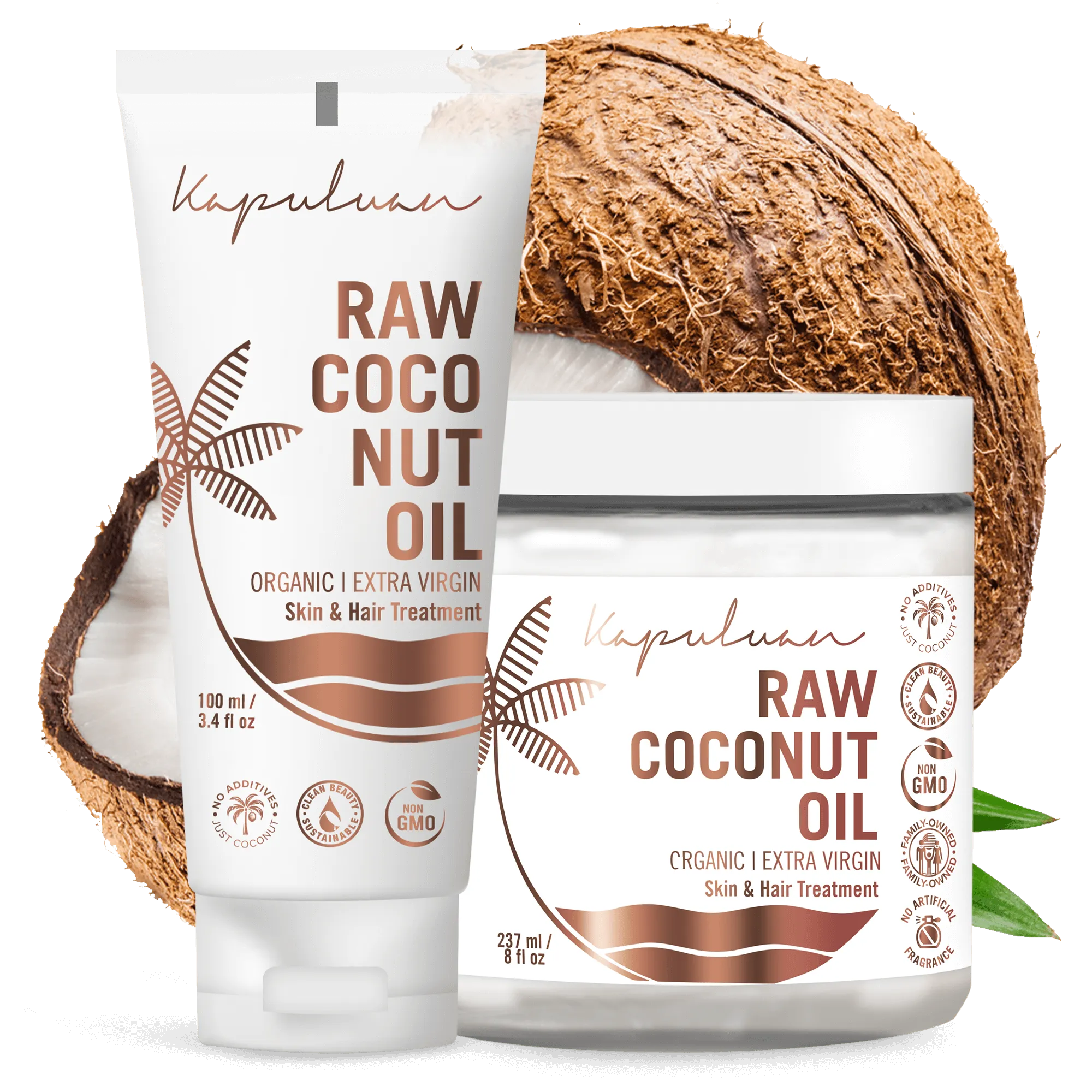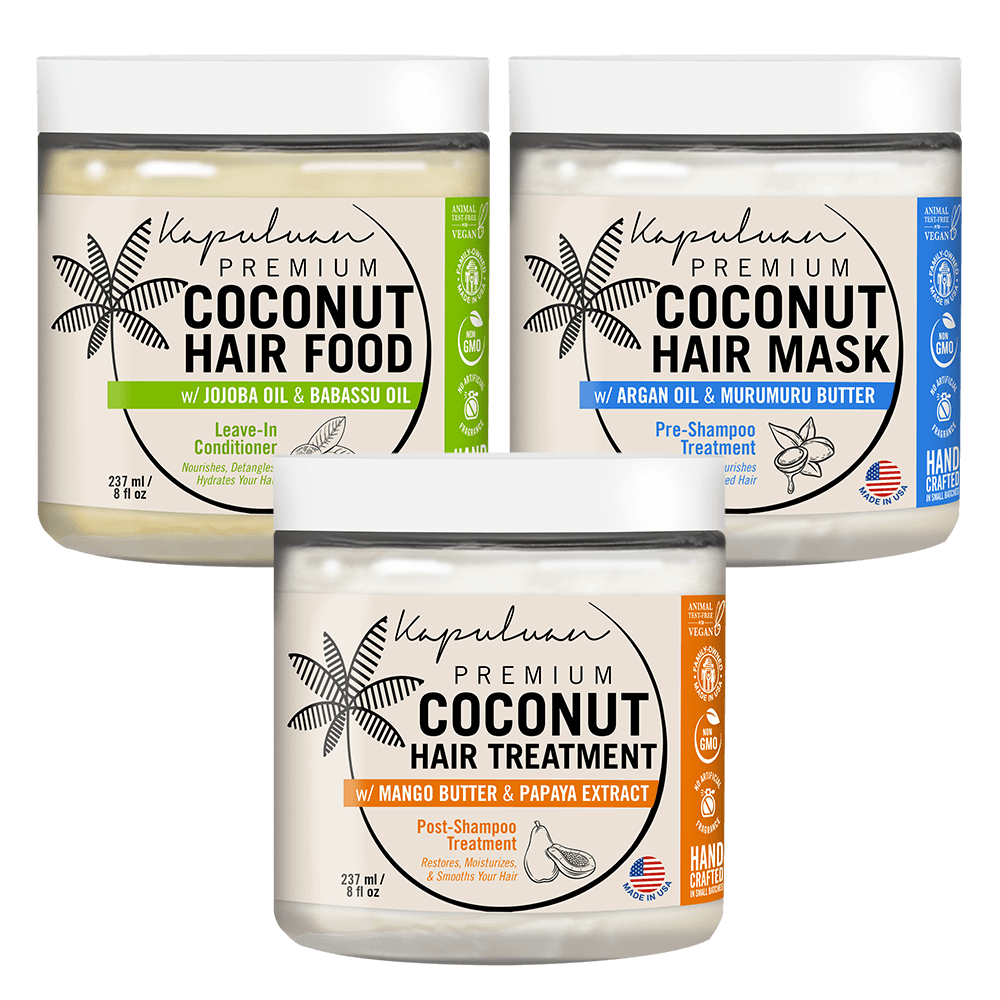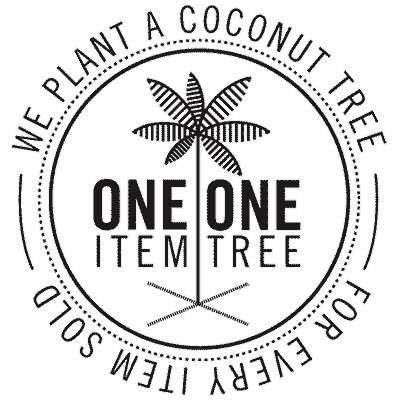Last Updated on July 2, 2024 by Kapuluan

We’ve all been there, staring in dismay at the hairbrush or the shower drain, wondering why our locks are thinning and what we can do to stop it. Instead of resorting to expensive treatments or harsh chemicals, let’s turn our attention toward nature’s bounty for a solution. Have you ever considered the humble coconut? This tropical fruit is not just good for pina coladas and sweet treats; its oil has much to offer those battling hair loss.
Coconut oil is rich in properties that are phenomenally beneficial for hair health. It’s packed full of fatty acids that nourish your scalp, protecting your precious strands from protein damage while promoting growth and thickness. But don’t just take our word for it – we’re here to guide you through how coconut oil works its magic on your mane. We’ll show you how you can incorporate this natural remedy into your routine, monitor the progress, and what precautions need to be taken. So let’s embark on this journey towards freedom from hair woes together!
Key Takeaways
- Coconut oil contains fatty acids, vitamins, antioxidants, and antimicrobial properties that nourish the scalp, promote hair growth, and protect hair follicles from damage.
- Massaging coconut oil into the scalp improves blood circulation, facilitates nutrient absorption, and hydrates the hair shaft.
- Coconut oil can be used topically and consumed orally for its benefits, making it a versatile remedy for hair loss prevention.
- Consistency, patience, and monitoring progress are important when using coconut oil to combat hair loss, as results may vary for different individuals.
Understanding the Causes of Thinning Hair
While you’re relishing your luscious locks, thinning hair can sneak in uninvited, often triggered by factors like aging, hormonal imbalances, or stress. Hormonal imbalances can throw our bodies out of whack and affect the health of our hair. These imbalances might come from various sources – menopause, thyroid issues, or even pregnancy. Nutritional deficiencies also play a significant role in this issue; lacking essential nutrients like iron or biotin can deprive your hair follicles of what they need to grow and thrive. We reckon it’s time we take back control over these unforeseen invaders. Now let’s talk about coconut oil – this magical elixir gifted to us by Mother Nature herself. Coconut oil comes packed with lauric acid that actively fights against protein loss in hair and strengthens its roots. It’s rich in vitamins K & E, which work together to feed hair follicles, improve scalp blood circulation, and promote healthy growth. The antioxidants help protect against environmental damage, while the antimicrobial properties keep infections at bay that could otherwise lead to hair loss. Harnessing the power of nature is where true freedom lies – liberating ourselves from synthetic products filled with harsh chemicals that do more harm than good. By utilizing coconut oil to combat thinning hair caused by hormonal imbalances or nutritional deficiencies, we’re effectively tapping into an abundant reservoir of natural goodness that promotes healthier tresses and respects our bodies’ innate wisdom and ability to heal itself. Embracing such natural remedies helps us maintain balance within ourselves without compromising on our well-being; after all, isn’t attaining optimal health while living harmoniously with nature the ultimate form of freedom?Examining the Properties of Coconut Extract
You might be surprised to learn that the extract derived from this tropical fruit has unique properties that can help manage issues related to thinning tresses. Coconut oil is extracted through various methods, including cold pressing and centrifugation, each affecting its nutrient profile differently. A nutrient content analysis reveals an impressive array of vitamins, minerals, and fatty acids found within coconut oil that are indispensable for hair health. Let’s take a closer look at what makes coconut oil so beneficial:- Rich in Essential Fatty Acids: Coconut oil is packed with medium-chain fatty acids like lauric and capric acid. These lipids penetrate the hair shaft more effectively than other oils due to their low molecular weight, providing deep nourishment and strengthening your strands.
- Anti-microbial Properties: The high concentration of lauric acid also gives coconut oil powerful anti-microbial benefits, which can keep your scalp healthy and free from dandruff-causing fungi.
- Antioxidants Galore: Additionally, virgin coconut oil contains antioxidants such as Vitamin E that protect your hair follicles against damage caused by harmful free radicals.
Benefits of Fatty Acids for Scalp Health
Imagine the wonders essential fatty acids can do for your scalp’s health! Coconut oil is a rich source of these nutrients, and it works magic in promoting healthier hair by improving scalp conditions. It boasts an impressive composition of saturated fats, with the majority being Medium Chain Fatty Acids (MCFA) or triglycerides. When applied to our scalps, these MCFAs are easily absorbed, paving the way for enhanced fatty acid absorption. This provides intensive nourishment to our hair follicles, ultimately leading to stronger strands that are less prone to breakage. The key to unlocking coconut oil’s benefits lies in understanding its unique ability as part of scalp nourishment techniques. Regularly massaging this natural miracle into your scalp can help stimulate blood circulation and facilitate the penetration of nutrients deep into your hair roots. The lauric acid found abundantly in coconut oil has a low molecular weight and straight linear chain, allowing easier access into the hair shaft. This means improved hydration for your locks, reduced protein loss from each strand, and protection against environmental pollutants and excess heat. Incorporating coconut oil into your regular hair care regimen isn’t just about combatting hair loss; it’s about granting yourself the freedom to embrace healthier, fuller, livelier tresses without resorting to harmful chemicals or costly treatments. It’s also about nurturing a more balanced lifestyle where we learn how powerful nature is in addressing our concerns – like thinning hair or bald patches caused by poor scalp health. So go ahead, bask in this all-natural solution that promises and delivers noticeable improvements for your crowning glory!Protection from Protein Damage
Maintaining the protein integrity of your tresses is another fantastic advantage of using natural alternatives for scalp nourishment. Let’s take, for instance, a research study published in the Journal of Cosmetic Science that revealed pre-wash treatments with such resources significantly minimized protein damage in both undamaged and chemically treated hair. Coconut oil has been found to be particularly effective due to its unique ability to penetrate the hair shaft and protect against this protein loss. This means it not only aids in maintaining your hair’s vital strength but also provides essential nourishment from within, serving as an excellent form of Protein Enrichment. Coconut oil’s contribution extends beyond just topical application, it has a significant dietary impact too:- Its high lauric acid content – a medium-chain fatty acid – makes it easier for our body to absorb and utilize.
- The more effectively these nutrients are absorbed into our body, the better they can contribute to overall health, including our scalp and hair.
- The presence of vitamins like E and K and minerals like iron further boost its nutritional profile.
- These nutrients feed our follicles directly when applied topically or ingested as a balanced diet.
Incorporating Natural Remedies into Your Routine
Switching to natural remedies in your daily routine isn’t just about saying no to harsh chemicals. It’s also an incredible way to say yes to a healthier, happier you! There is a plethora of natural remedies that one can incorporate into their routines. However, the diversity of these natural remedies can sometimes be overwhelming. Don’t worry; we’re here to guide you through this journey. One super ingredient that deserves special mention in this context is coconut oil. This all-natural gem has been used for centuries across various cultures for its many health benefits. The beauty of incorporating coconut oil into your routine lies in its versatile nature and the simplicity with which it can be integrated. It doesn’t matter if you’re cooking or caring for your skin and hair – there’s always room for coconut oil. For instance, massage a generous amount onto wet hair before bed and wash it off in the morning – voila! You have a deeply nourishing homemade hair mask that effectively combats dryness and breakage. A few drops mixed with your shampoo can protect your tresses from protein damage while washing! And let’s not forget this magic potion’s role as an essential part of our hair loss prevention regime! Coconut oil contains lauric acid, which binds strongly with hair proteins preventing them from breaking down and leading to less hair loss over time. So go ahead, add some coconut magic into your life! Trust us when we say that this shift towards natural products will liberate you from harmful chemicals and change how healthy and happy you look and feel! Embrace the natural remedies diversity today – make coconut oil an integral part of your routine integration because every drop counts towards combating hair loss naturally.Detailed Guide to Applying Coconut Extract
Ready to dive into the world of natural beauty? Let’s explore how to apply coconut extract effectively for maximum benefits. We’ll cover extraction methods and application techniques to ensure you get the most out of this super ingredient. Coconut oil is extracted from mature coconuts using either a dry or wet process. The dry process involves pressing the meat of the coconut to squeeze out the oil, while the wet process uses water or milk to extract it. It’s a meticulous method that guarantees an end product rich in beneficial nutrients. Regarding application techniques, we’ve got some practical tips for you. First, remember that less is more with coconut oil; a small amount goes a long way! For best results, warm up a bit of oil between your hands before applying it directly onto your scalp and hair strands – this allows for better absorption. Gently massage it into your scalp in circular motions; this helps distribute the product evenly and stimulates blood circulation, promoting hair growth. Leave it on overnight if possible (use a shower cap or old pillowcase as coconut oil can stain fabrics), then rinse thoroughly with lukewarm water and shampoo as usual. Applying coconut extract might seem like an art form at first glance, but once you start incorporating these steps into your routine, you’ll see how easy (and effective!) it can be in combating hair loss. Remember – consistency is key here; using coconut oil regularly will yield visible results over time, so don’t give up after just one use! With our guidance on extraction methods and application techniques, we’re sure you’re ready now more than ever to embrace nature’s gift in all its glory! Unleash your freedom by stepping away from chemical-laden products and towards nourishing natural alternatives like coconut extract – because nothing beats authenticity when achieving true beauty!Monitoring the Progress and Results
Keeping an eye on your journey toward a healthier beauty regimen isn’t just exciting. It’s essential. As we continue to use natural products such as coconut oil for hair loss prevention, it’s important that we document our progress. This provides us with a clear picture of the regimen is effectiveness and keeps us motivated to continue the routine. Hair Growth Tracking can be done in several ways – from taking regular photographs to maintaining a diary where you note down any changes.- Take before and after photos regularly to document your hair growth visually.
- Keep a journal dedicated to tracking your progress – jot down any noticeable changes, good or bad.
- Measure your hair length every few weeks- this might seem trivial, but it gives numerical evidence of growth.
- Note any changes in the health of your scalp or if fewer hair strands are falling out during combing and washing.
- Monitor how well your hair retains moisture; healthy, moisturized hair often indicates lesser breakage.




